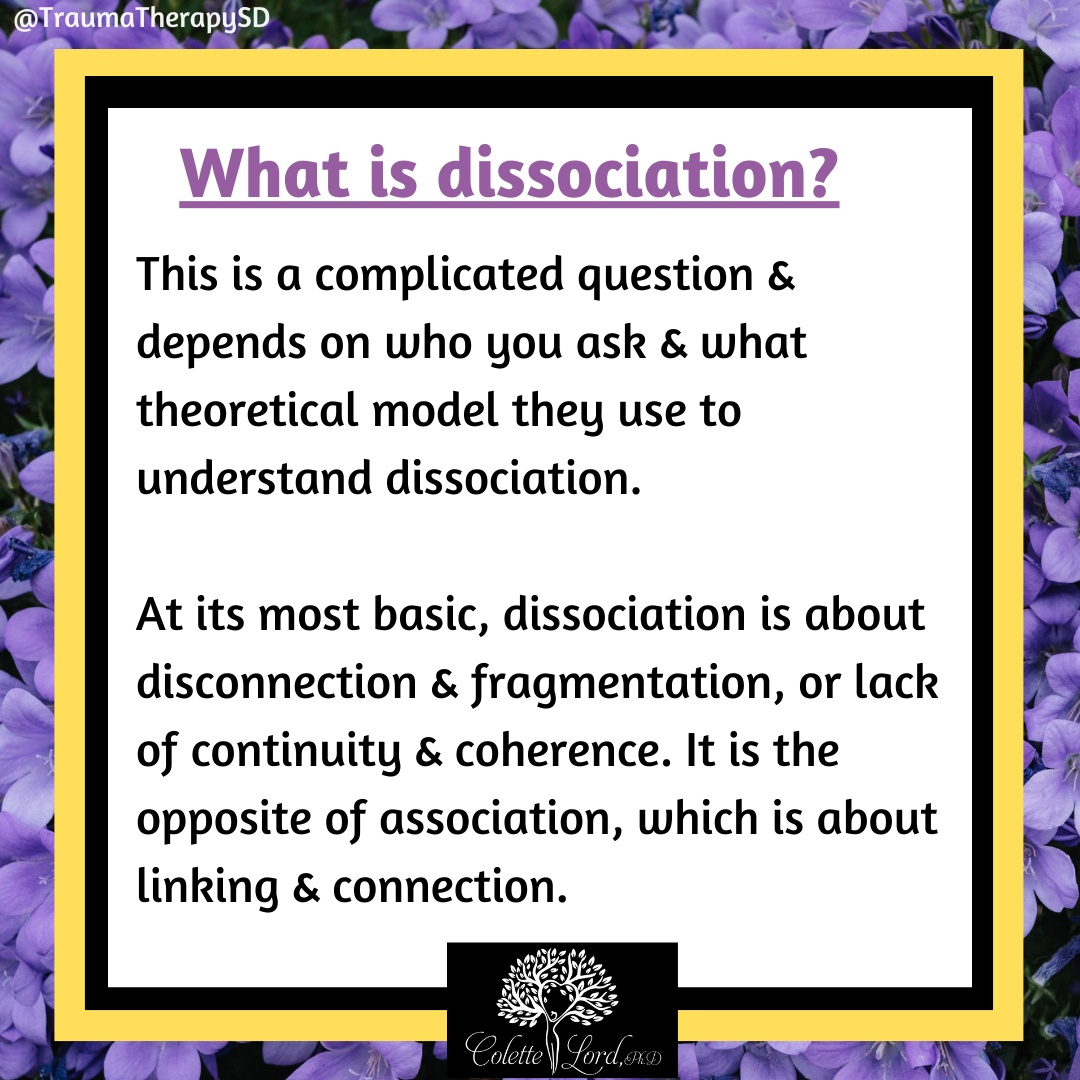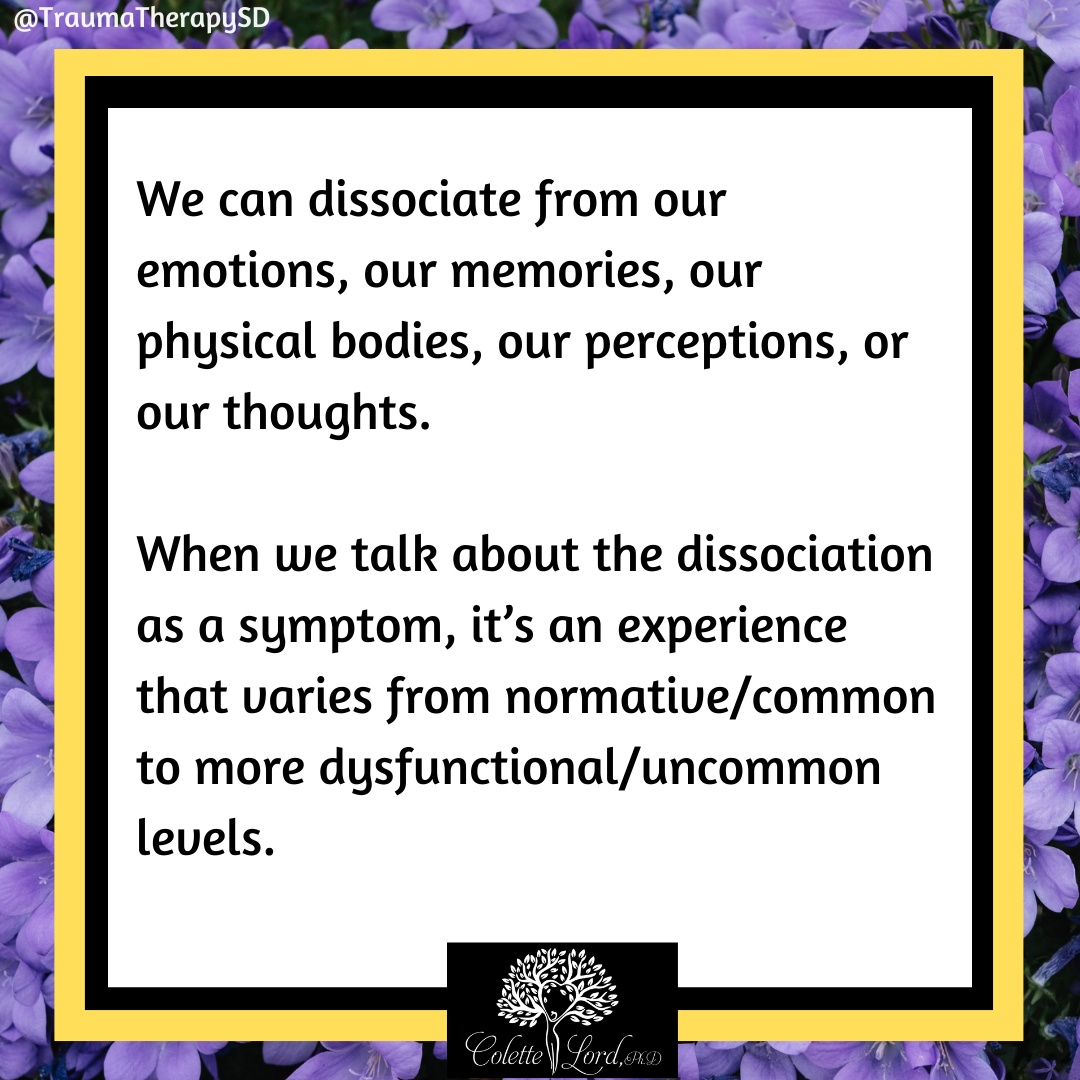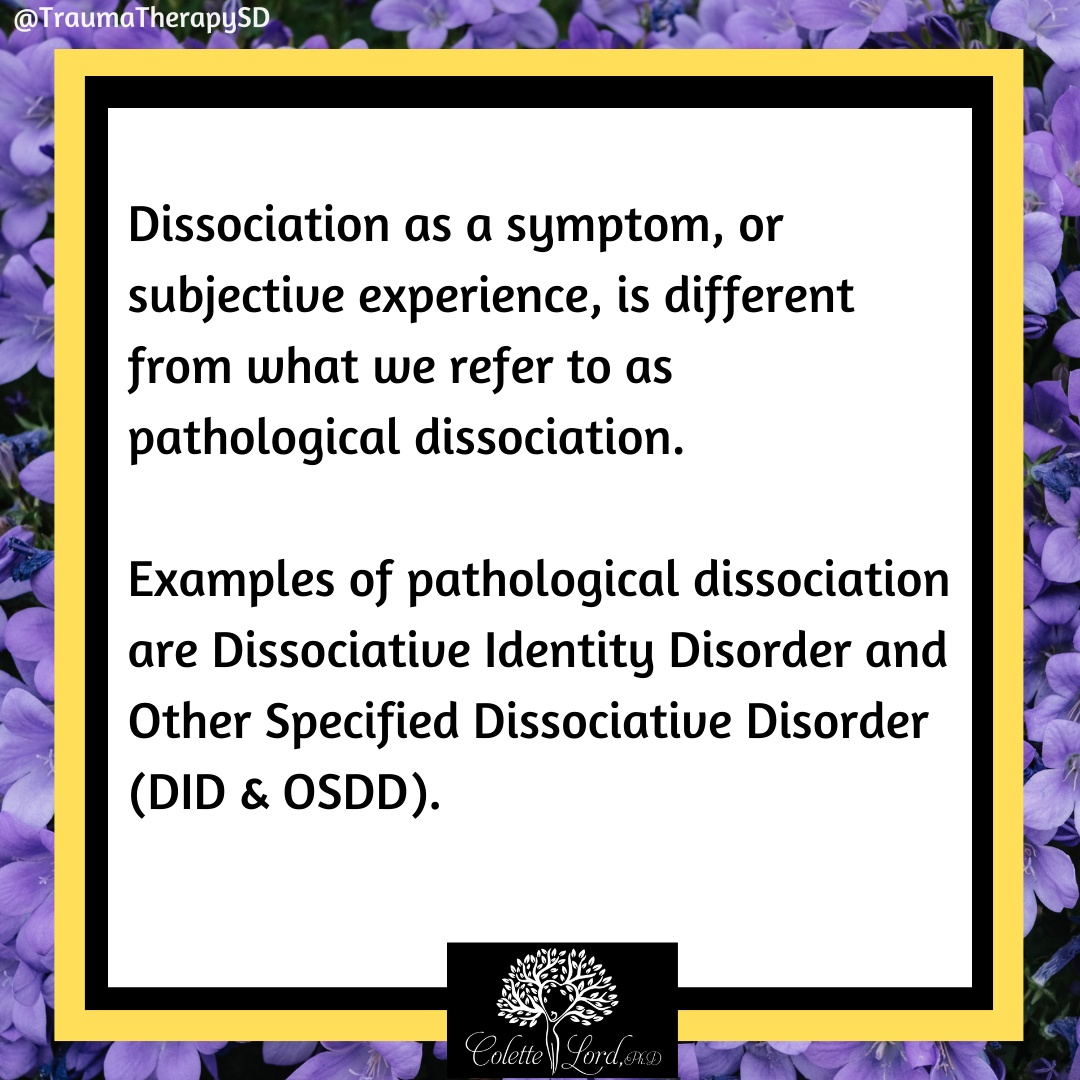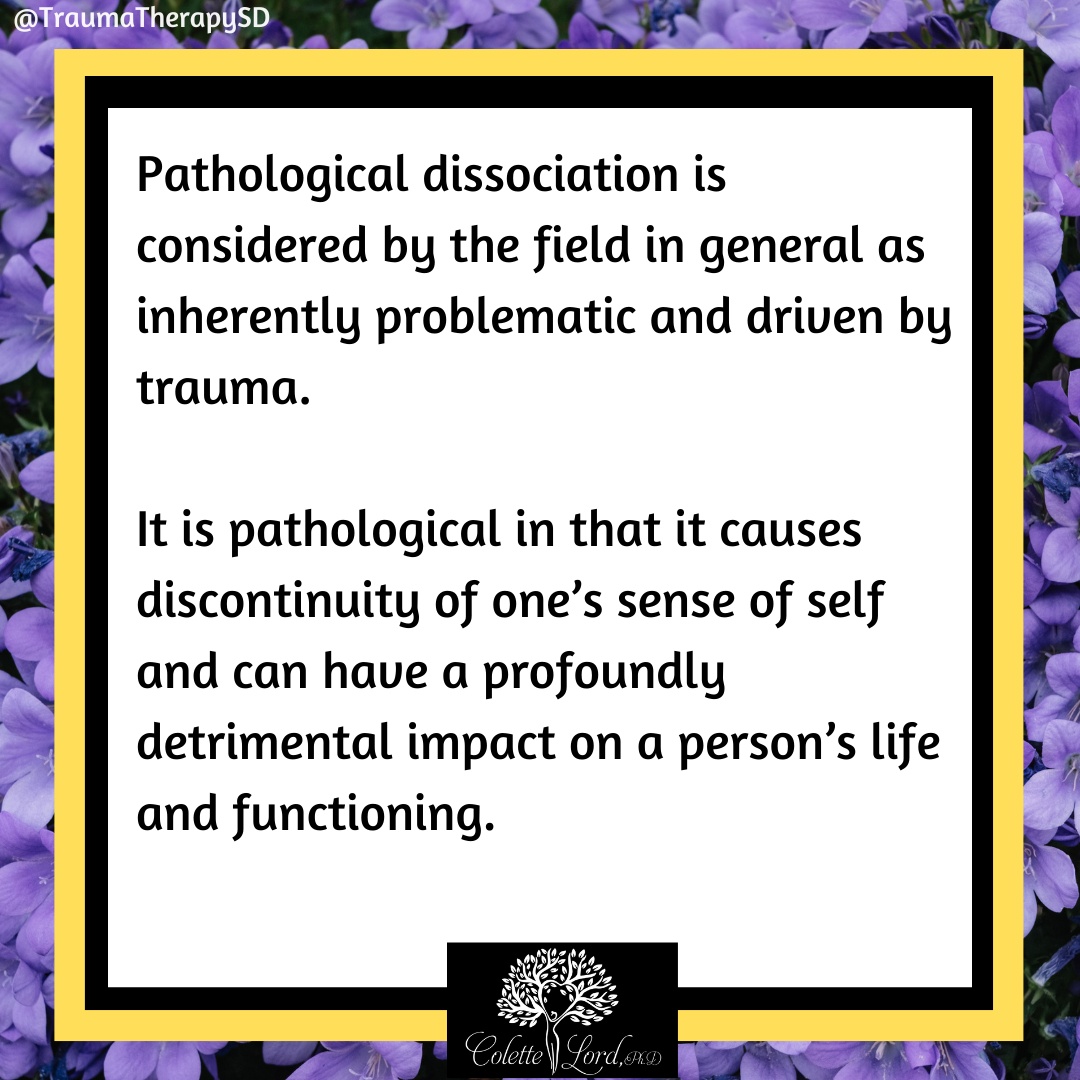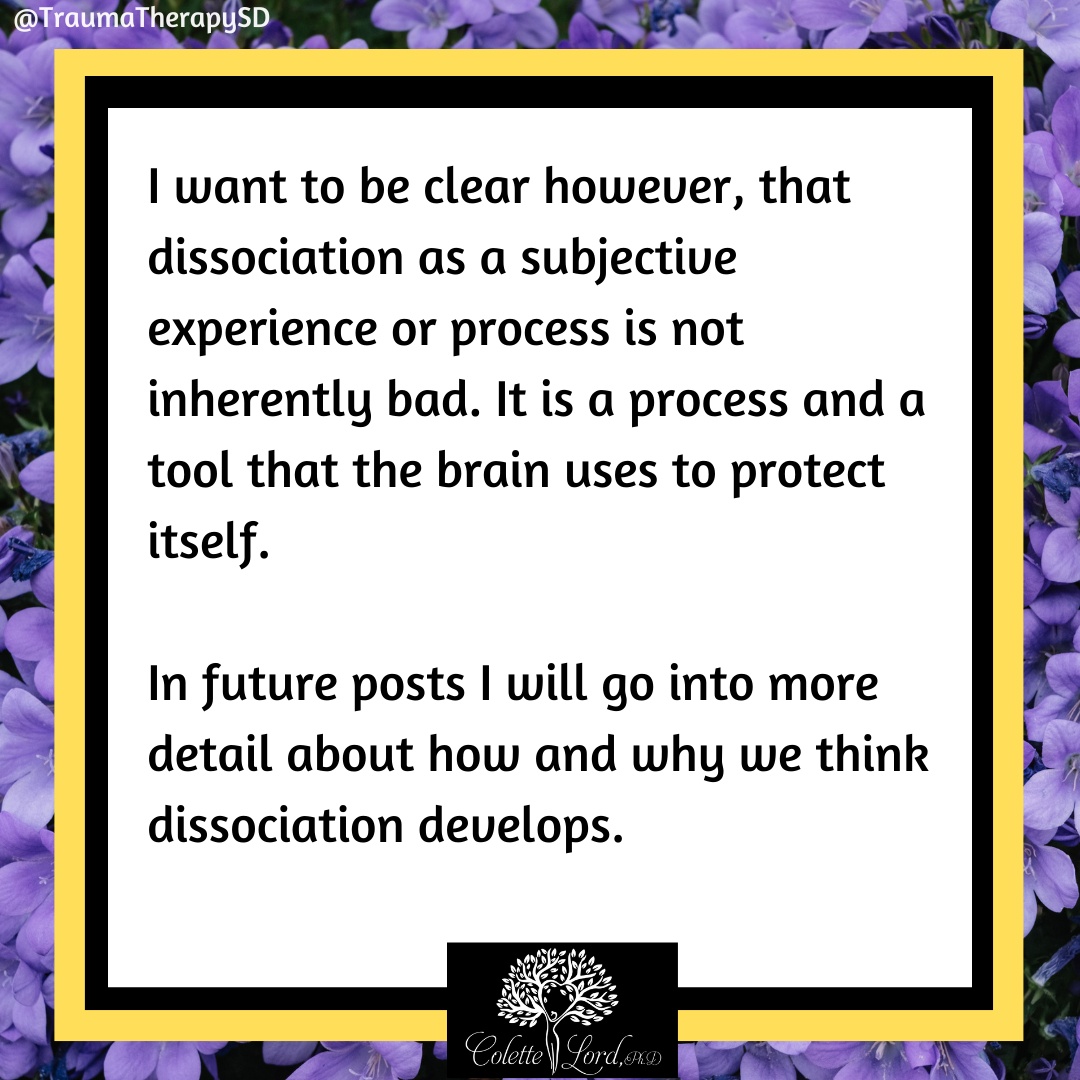What is dissociation?
What is dissociation?
This is a complicated question and depends on who you ask and what theoretical model they use to understand dissociation.
At its most basic, dissociation is about disconnection and fragmentation, or lack of continuity and coherence. It is the opposite of association, which is about linking and connection.
We can dissociate from our emotions, our memories, our physical bodies, our perceptions, or our thoughts.
When we talk about the dissociation as a symptom, it’s an experience that varies from normative/common to more dysfunctional/uncommon levels.
Dissociation as a symptom, or subjective experience, is different from what we refer to as pathological dissociation. Examples of pathological dissociation are Dissociative Identity Disorder and Other Specified Dissociative Disorder (DID & OSDD).
Pathological dissociation is considered by the field in general as inherently problematic and driven by trauma. It is pathological in that it causes discontinuity of one’s sense of self and can have a profoundly detrimental impact on a person’s life and functioning.
I want to be clear however, that dissociation as a subjective experience or process is not inherently bad. It is a process and a tool that the brain uses to protect itself.
In future posts I will go into more detail about how and why we think dissociation develops.

